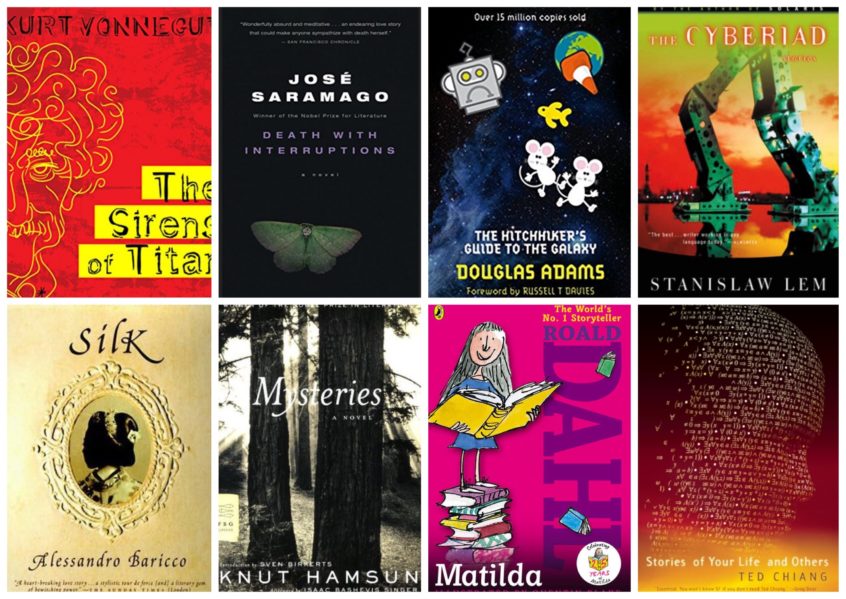In what’s becoming an annual tradition here, below is my top ten books reading list for 2017. It will be updated over the course of the year to reflect the fiction and literature books I’ve read over the course of the year.
As I read each book, I will list it below, in order of preference from most to least favorite, with a short review and memorable quote.
What’s interesting is that I noticed that my 2016 list was stocked unintentionally with books about the horror of war. This year’s list, so far, is filled with books set in future worlds or alternate realities (from Vonnegut to Nabokov). Perhaps this is because these fantasy and science-fiction worlds can be used as sandboxes to comment on (and warn about) our world today..
Why, some have asked, am I listing only the fiction & literature books I read, rather than the non-fiction & advice books I study?
Because literature has helped my life far more than the bulleted lists and dry facts of most non-fiction. It provides metaphors through which to understand life better, stories that engage the deepest parts of the brain, and sometimes challenges that stretch and train the mind.
I also just enjoy it.
Choose some of the top books here to enjoy yourself, or recommend your favorites in the Comments section below
BOOK: Ham on Rye
AUTHOR: Charles Bukowski
RECOMMENDED BY: Many people for many years
MY RECOMMENDATION: Highly Recommended
I enjoyed Women and Post Office, but it wasn’t until I read Ham on Rye this year that I became a Bukowski convert. A fictionalized memoir of Bukowski’s childhood and adolescence in Pasadena from the Great Depression to Pearl Harbor, Ham on Rye is a textbook example of how much you can say with so few words. The prose is lean, muscular, and seemingly effortless, yet each section and many paragraphs end like the twist of a knife. You find yourself compulsively reading, laughing, and not wanting the book to end, yet not understanding how it is that this book wields such power. It is the literary equivalent of The Stooges first album, and among the greatest angry, aimless, violent youth stories ever written.
The problem was you had to keep choosing between one evil or another, and no matter what you chose, they sliced a little more off you, until there was nothing left. At the age of 25 most people were finished. A whole goddamned nation of assholes driving automobiles, eating, having babies, doing everything in the worst way possible, like voting for the presidential candidate who reminded them most of themselves.

BOOK: A Clockwork Orange
AUTHOR: Anthony Burgess
RECOMMENDED BY: Via a Tweet to me from @CyclisteFemme
MY RECOMMENDATION: Highly Recommended
It is poetry. It is social commentary. It is disturbing. It is compelling. In short, it is art. And interesting that so many of my favorite thinkers and writers, from Burgess to Joseph Cambell, were also James Joyce scholars. Along with Riddley Walker, this is one of the great dystopian novels that revels in its own language, turning reader into linguist. What’s most interesting about this edition is that it includes the final chapter that the American publisher cut out for the US edition (and was also not incorporated into the unforgettable and also highly recommended Stanley Kubrick film). What’s interesting is how the two different endings create two very different themes for the book. Without giving away anything, the American ending creates the message that people don’t change, they are what they are, and that’s how the world works. The original ending that Burgess wanted leaves the reader with a more developmental message, which is that we are different people at different ages, that just as the youth will rebel against the family-job-security values of adults, they too will one day become the traditional adults that their children will rebel against. As we are pulled along by the current of life, we change as we get deeper into the river. What’s interesting is that, as a reader, I preferred the American ending. It worked better within the world of the book. However, as a thinker, I preferred the original ending, because it makes a larger, deeper, and more true point. So it’s great to have both options in this book. The only odd thing is a very snippy, condescending note from the publisher at the end of the book, which only serves to undercut Anthony Burgess’s introduction. Note to WW Norton: Remove that note on the next reprint. It serves nothing other than to justify Burgess’s complaints. Anyway, in closing, no matter which version you prefer, the main message of this unique work of inspired genius remains intact:
A man who cannot choose ceases to be a man.
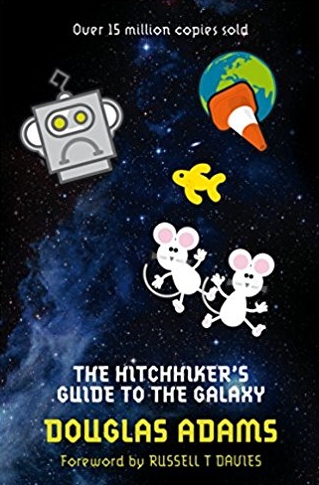
BOOK: The Hitchhiker’s Guide to the Galaxy; The Restaurant at the End of the Universe; Life, The Universe, and Other Things
AUTHOR: Douglas Adams
RECOMMENDED BY: Elon Musk
MY RECOMMENDATION: Highly Recommended
It is a skill to be a funny writer. It is another skill to be a smart writer. It is another skill to be a clear writer. It’s another skill to be an imaginative writer. And it is among the greatest of all skills to be a writer who understands the human condition. Put all of these elements together seamlessly and cleverly, and you have Douglas Adams, the author of one of the most classic series in science fiction—an honor it deserves. So many times as I read these three books, I thought: “I wish I’d never read that, because it’s so fucking clever and observant and funny and well-put, and now I’m never going to be able to write it because someone else already has.” What The Simpsons are to TV, this book series is to sci-fi: It’s all been done right here already. Throw your pen away. Don’t bother. I’d normally insert a summary of the story here, but the story doesn’t matter. What matters is Douglas’s cosmically inventive mind, which has you putting down the book in astonishment with every page. To write about the biggest questions of existence—from the origin of our civilization to the purpose of our life to the end of the universe—and state it all so simply and originally is a true art, and Adams is a true artist. I’m breaking the rule of this blog and including two quotes below, each showing a different aspect of Adams’s genius.
I’ve never met all these people you speak of. And neither, I suspect, have you. They only exist in words we hear. It is folly to say you know what is happening to other people. Only they know, if they exist. They have their own Universes of their eyes and ears.
The Hitchhiker’s Guide to the Galaxy has this to say on the subject of flying. There is an art, it says, or rather, a knack to flying. The knack lies in learning how to throw yourself at the ground and miss. Pick a nice day, it suggests, and try it. The first part is easy.
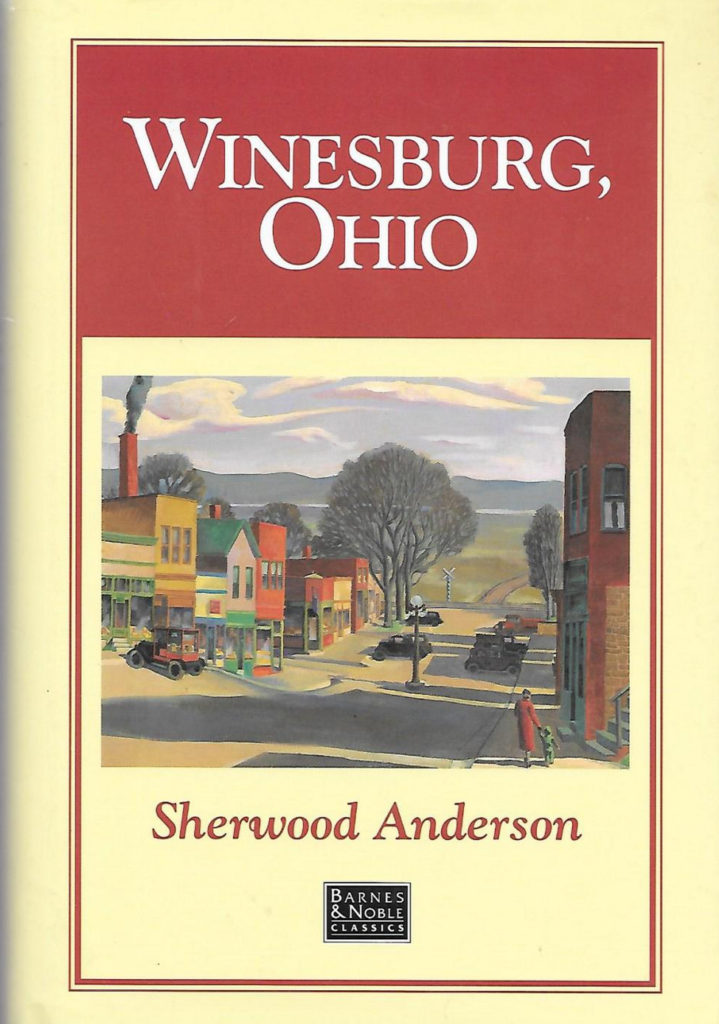 BOOK: Winesburg, Ohio
BOOK: Winesburg, Ohio
AUTHOR: Sherwood Anderson
RECOMMENDED BY: Because it was an influence on one of my favorite writers, John Fante
MY RECOMMENDATION: Highly Recommended, But Only For Those Who Read American Literature
I picked up this book, began reading, and was uncertain. Even when I read a great line in the first chapter (which is similar to the quote in The Sirens of Titan below) about how there are countless beautiful truths in the world, but as soon as an individual selects one truth, clings to it tightly, and tries to live life by it, they become “grotesque.” The book, published in 1919, is a collection of portraits of “grotesques” in a town. And in the following sketch, “Hands,” Anderson took my breath away. When I read “Adventure,” I knew that Anderson had few peers who were able to look so astutely into the workings of the human mind, spirit, and soul. There are so many realistic and nuanced tragedies here, that you can’t help but think of what truth you’ve selected for yourself that has turned into a prison rather than a portal. There is a subtlety to this book, and it is not for everyone, but I was awestruck by Sherwood’s profoundly simple descriptions of his characters, their relationships, their dreams, and their inhibitions. This is a long quote from the sketch “Sophistication,” and I include it here in its entirety solely so I can re-read it often:
There is a time in the life of every boy when he for the first time takes the backward view of life. Perhaps that is the moment when he crosses the line into manhood. The boy is walking through the street of his town. He is thinking of the future and of the figure he will cut in the world. Ambitions and regrets awake within him. Suddenly something happens; he stops under a tree and waits as for a voice calling his name. Ghosts of old things creep into his consciousness; the voices outside of himself whisper a message concerning the limitations of life. From being quite sure of himself and his future he becomes not at all sure. If he be an imaginative boy, a door is torn open and for the first time he looks out upon the world, seeing, as though they marched in procession before him, the countless figures of men who before his time have come out of nothingness into the world, lived their lives and again disappeared into nothingness. The sadness of sophistication has come to the boy. With a little gasp he sees himself as merely a leaf blown by the wind through the streets of his village. He knows that in spite of all the stout talk of his fellows he must live and die in uncertainty, a thing blown by the winds, a thing destined like corn to wilt in the sun. He shivers and looks eagerly about. The eighteen years he has lived seem but a moment, a breathing space in the long march of humanity. Already he hears death calling. With all his heart he wants to come close to some other human, touch someone with his hands, be touched by the hand of another. If he prefers that the other be a woman, that is because he believes that a woman will be gentle, that she will understand. He wants, most of all, understanding.
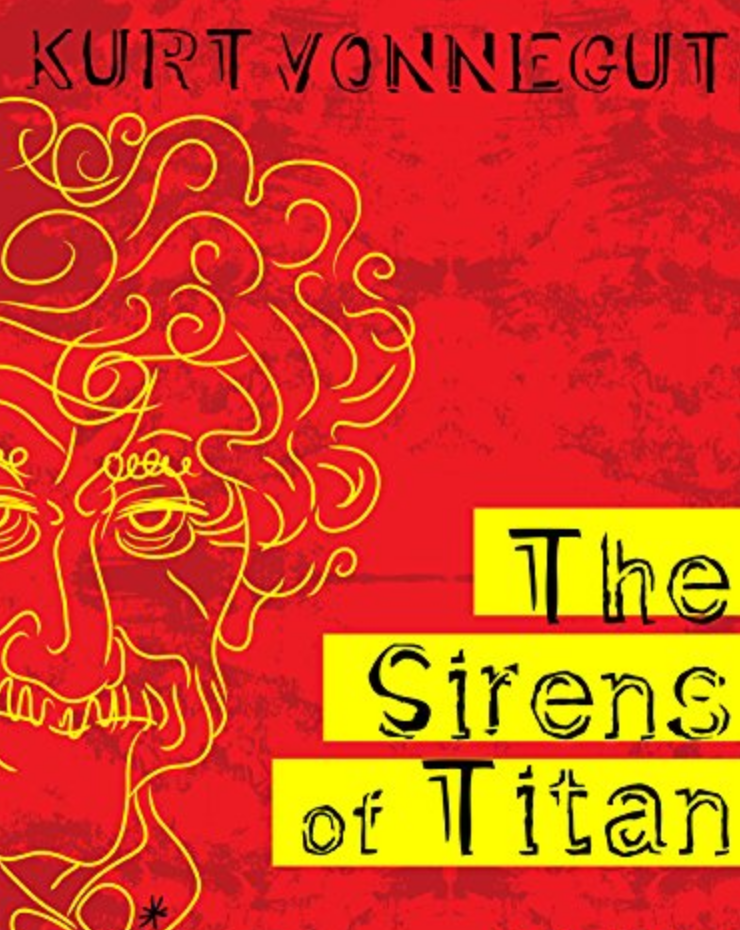 BOOK: The Sirens of Titan
BOOK: The Sirens of Titan
AUTHOR: Kurt Vonnegut
RECOMMENDED BY: Reading other Vonnegut Works
MY RECOMMENDATION: Highly Recommended
The reason I became obsessed with literature was that I had good high school teachers, like Greg Baker, Richard Dolezal, Mark Germano, and Miss Andriga, who turned me onto books like James Joyce’s Ulysses, Albert Camus’ The Stranger, and Kurt Vonnegut’s Cat’s Cradle. These set in motion a life-long love of writing, words, ideas, and literature. And though I returned to different Vonnegut books many times over the years, I’d never read this early work. It is a predecessor both to the interplanetary kidnappings of Slaughterhouse-Five and the Vonnegutian religion of Cat’s Cradle (both must-read books), and is just as compelling. The only drawback is that Winston Niles Rumfoord’s plan to unite mankind and create a universal religion didn’t totally track for me. Otherwise, a book so good, so compellingly written, so fiendishly clever, and so breezily philosophical that you don’t want it to end.
Random Note: If anyone who went to school with me knows the full name/spelling of Miss Andriga, please let me know in the Comments. Would be great to credit her properly and also directly thank her for all she taught me.
“Just imagine that your Daddy is the smartest man who ever lived on Earth, and he knows everything there is to find out…Now imagine another little child’s Daddy…is just as smart and just as right as your Daddy is…Only if they ever met each other they would get into a terrible argument, because they wouldn’t agree on anything. Now, you can say that your Daddy is right and the other little child’s Daddy is wrong, but the Universe is an awfully big place. There is room enough for an awful lot of people to be right about things and still not agree. The reason both Daddies can be right and still get into terrible fights is because there are so many different ways of being right.”
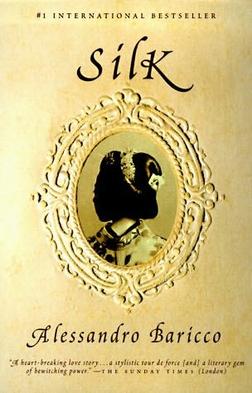 BOOK: Silk
BOOK: Silk
AUTHOR: Alessandro Baricco
RECOMMENDED BY: Wendy Asher
MY RECOMMENDATION: Highly Recommended
This feels not like a book, but a delicate, exquisitely wrought glasswork. You want to read it slowly, for fear of shattering it. Barely a word is out of place or devoid of function. It is a book about love that was crafted with love. As much a poem as a story. It is less than a hundred pages, and each chapter is just a page or two. It is about a silkworm merchant in nineteenth century France, who travels to Japan and has an affair with a woman he never truly meets, speaks to, or sleeps with. It dominates, risks, and ultimately determines and preoccupies the course of his life and marriage. The book ends as subtly as it begins, like a wave lapping on the shore of a brief life.
‘It is a strange sort of pain.’
Softly.
‘To die of yearning for something you’ll never experience.”
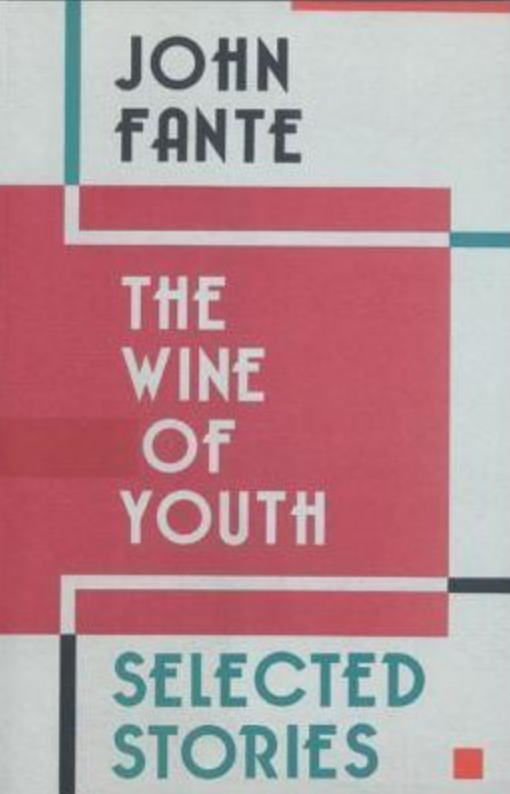
BOOK: The Wine of Youth
AUTHOR: John Fante
RECOMMENDED BY: Reading other Fante Works
MY RECOMMENDATION: Highly Recommended, but Read Other Fante First
John Fante may quite possibly be my favorite writer. If you haven’t read him yet, start with Ask the Dust, then The Road to Los Angeles, then My Dog Stupid (from the West of Rome anthology). This book is a collection of short stories, nearly all of them based on his youth, growing up in an Italian family in Colorado. The book is divided into two sections: The early stories and the later stories. The early stories (originally collected as Dago Red) are pure magic. They conjure up the innocence of childhood, the terror of growing up with a cheating, drinking, authoritarian bricklayer father, the sadness of watching his beaten-down mother lose the life in her day by day, the disciplinary mysticism of the Catholic church, and the tincture of cockiness and subservience that make up the life of a young boy who already knows he’s too big for this small life. It’s hard to define what it is that makes these stories leap off the page and fire up the mind—these words that turned plodding postman Charles Bukowski into legendary writer Charles Bukowski when he discovered Fante in the L.A. Public Library. But in the later stories, the magic is gone. Same types of stories set in the same world, same lean no-nonsense writing – but now they are no longer that of a craftsman building a powerful world but of an old man sharing a memory. What makes those first stories work? What makes those later stories sag (except for “The Dreamer”)? I wish I knew. Would make me a better writer.
She seemed a million years old, Mamma, our mother, and we her children had felt her broken heart, she there in the kitchen door, an apron hiding the tumbled misery of her churning hands, little rivers of vanished beauty wandering vainly down the wasteland of her cheeks.
Once I too was like [beautiful] Coletta, said the speechless lips, but all that I ever was has gone into the four of you, and into him, and then you stand, my burden and my reward. We felt her message, but we could not understand it, for it confused and terrified us; and rather than suffer with her we fled past her and through the back door, while tears tumbled down her cheeks as Papa’s laughter rattled through the house.
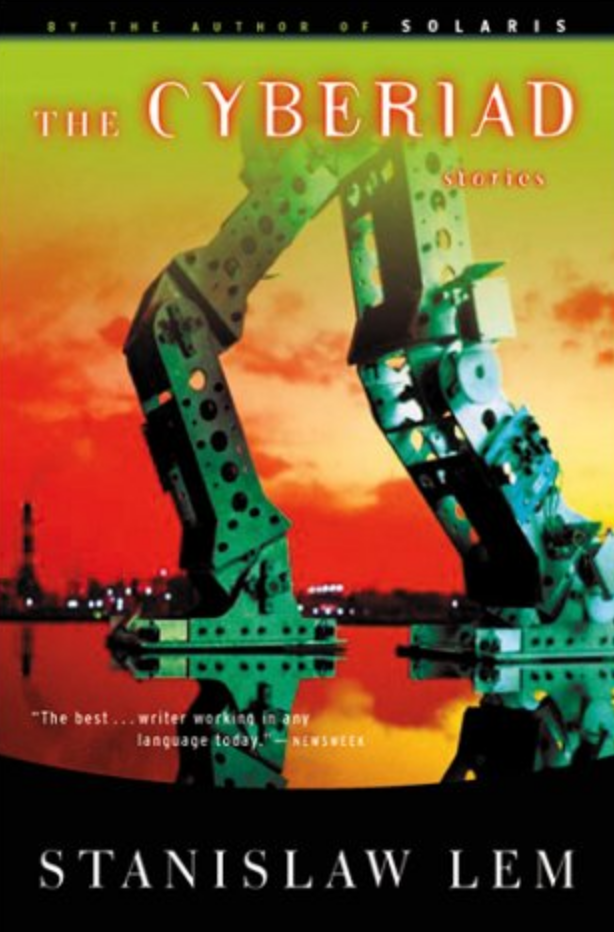 BOOK: Cyberiad
BOOK: Cyberiad AUTHOR: Stanislaw Lem
RECOMMENDED BY: Can’t Recall
MY RECOMMENDATION: Must Read, If You Like the Idea of Sci-Fi Fairy Tales
“The head of an average poet, after all, was written by the poet’s civilization, and that civilization was in turn programmed by the civilization that preceded it, and so on to the very Dawn of Time, when those bits of information that concerned the poet-to-be were still swirling about in the primordial chaos of the cosmic deep. Hence in order to program a poetry machine, one would first have to repeat the entire Universe from the beginning–or at least a good piece of it.”
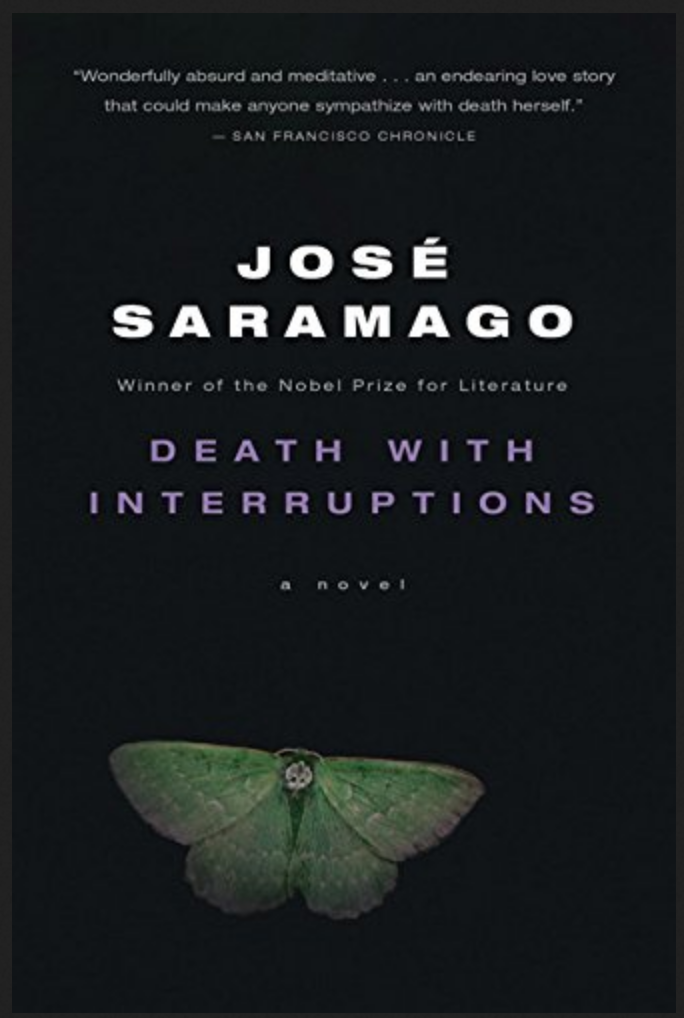 BOOK: Death With Interruptions
BOOK: Death With Interruptions
AUTHOR: Jose Saramago
RECOMMENDED BY: May K.
MY RECOMMENDATION: Recommended
The Los Angeles Times review on the back of this book of post-magical realism calls it “one writer’s petition against mortality.” I’d argue that it’s not. It’s a defense of mortality, and a humanization of death itself. In a sense, the book is three novellas about death: The first is a story about what would happen if death took a holiday and no one died. As Saramago writes, “if we don’t start dying again, we have no future.” The second is about what would happen if everyone got a week’s notice before they died; and the third is about what would happen if death fell in love with a mortal man. They are all exquisitely tied together, in a crisp, self-aware, fourth-wall-breaking narrative voice. It is simultaneously a condemnation of society (especially church, state, and media), yet a celebration of the beautiful and miraculous meaningless existence of the individual.
It seems you don’t understand that words are the labels we stick on things, not the things themselves, you’ll never know what the things are really like, nor even what their real names are, because the names you gave them are just that, the names you gave them.
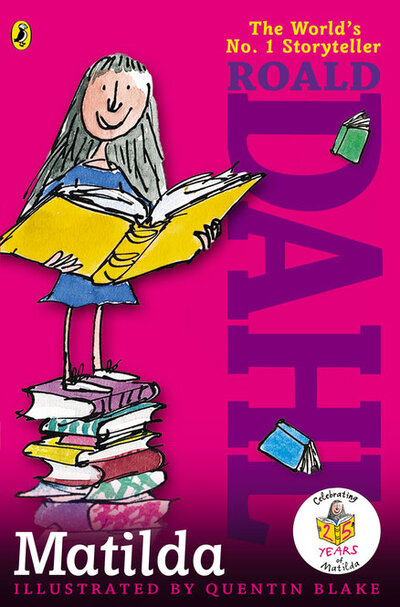
BOOK: Matilda
AUTHOR: Roald Dahl
RECOMMENDED BY: Ingrid Strauss
MY RECOMMENDATION: Highly Recommended
There is so much wisdom in great children’s books, and often so much darkness. Such is the work of Roald Dahl, whose beautifully unsettling short stories for adults I highly recommend reading. Start with these: “The Landlady,” “Pig,” “Lamb to the Slaughter,” “The Wonderful Story of Henry Sugar.” After you’ve read those, then move on to Matilda, the last novel Dahl wrote before his death in 1990. The film adaptation is every bit as good as the book, which is a rare thing to say. So if you go off on your Roald Dahl journey, make sure to watch Matilda and also the film of The Witches as well. As for the book itself, it is consistently ranked as one of the greatest children’s books of all time, and it is deserving of that honor. Roald Dahl’s writing voice is among the leanest, meanest of all time, perfectly spinning this tale of a preternaturally gifted five-year-old suffering at the hands of selfish, shallow, neglectful parents and a sociopathic teacher. Does she get her revenge? Of course she does. It’s a great underdog story of good versus evil, and a political metaphor as well. Just take a look at the quote below, which could easily be describing the political landscape today:
“That is the Trunchbull’s great secret.”
“What is?” Lavender asked.
Matilda said, “Never do anything by halves if you want to get away with it Go the whole hog. Make sure everything you do is so completely crazy it’s unbelievable.”
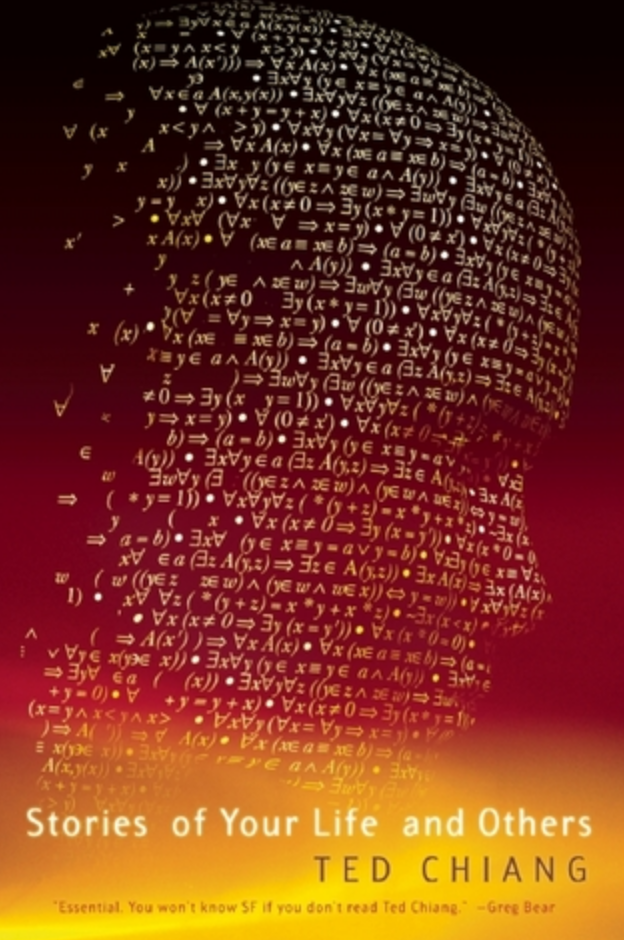 BOOK: Stories of Your Life and Others
BOOK: Stories of Your Life and Others
AUTHOR: Ted Chiang
RECOMMENDED BY: Online Reviews
MY RECOMMENDATION: Optional Read
It is rare to read a book that is in a class of its own, but such is the writing of Ted Chiang, at least to this novice science fiction reader. Though Chiang’s short stories are classified as science fiction, these are more accurately scientific fiction, or mathematical fiction. They read at times like more metaphysical versions of Richard Feynman-like problem-solving. Whether it’s a story based on Chiang’s love (and fear) of an equation (“Division by Zero”), the non-Euclidian conclusion of his finely detailed rewrite of the “Tower of Babylon,” or the linguistic anthropology of “Story of Your Life” (the basis for the film Arrival), Chiang will awe you with his brilliance. He’s a superb writer, thinker, and researcher, and the stand-out stories here (“Story of Your Life,” “Tower of Babylon,” and “Hell is the Absence of God,” which would also make a great film) are definitely worth reading, while others are only for those with a mind for academically detailed thriller-fantasy.
“He was grateful for all the pain he had endured, contrite for not recognizing it as the gift it was…He understood how life was an undeserved bounty…For him, the mystery was solved, because he understood that everything in life was love, even pain, especially pain.”
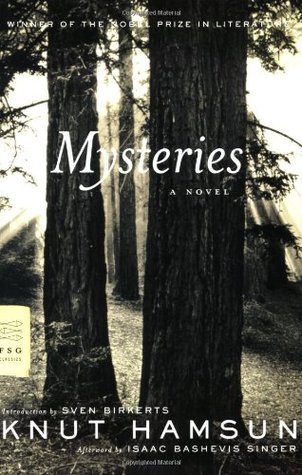 BOOK: Mysteries
BOOK: Mysteries
AUTHOR: Knut Hamsun
RECOMMENDED BY: Loved “Hunger”
MY RECOMMENDATION: Optional Read
A stranger arrives in a small port town. That is all this book, written in 1892, has in common with other tales where a stranger arrives. Because while this stranger does come bearing gifts, this stranger is as flawed, actually more flawed, than the inhabitants of the town. I loved Hamsun’s equally cynical Hunger (chiefly because I have a soft spot for narratives with self-hating, self-sabotaging writers) more than this book. That said, both books are far ahead of their time, precursors of modernism and a focus on the congestion of the interior life. Nagel, the anti-hero of Mysteries, does acts of kindness, but it comes with a price tag: putting up with his logorrhea, whims, paranoia, and fickleness. He falls in love with the town beauty, who’s engaged, and proceeds to misinterpret every gesture from her, leading him to the brink of a pointless suicide. The mysteries, then, of this book are not the magic of fairy-tales, but the complexities and self-deception of human nature. Many of those mysteries, thus, go unresolved.
What do people really know about life? We fall in line, follow the pattern established by our mentors. Everything is based on assumptions; even time, space, motion, matter are nothing but supposition. The world has no new knowledge to impart; it merely accepts what is there.
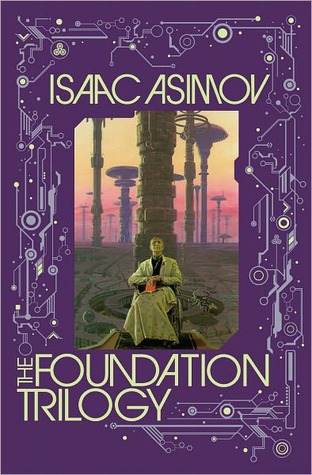
BOOK: Foundation Trilogy
AUTHOR: Isaac Asimov
RECOMMENDED BY: Elon Musk
MY RECOMMENDATION: Optional Read
If I had just read the first book in this trilogy, Foundation, this would definitely rate higher on the list. Even if I’d read just the first two books–the second being Foundation and Empire. But I didn’t love the third book, Second Foundation, as much. That said, this is one of the most classic science fiction series’ there is, and an early influence on Musk, which led to my interest. So I read all 750 pages. The book is centered around a figure named Hari Seldon, who has developed something called psychohistory, which predicts the future of mankind by mathematically examining the behavior of large groups of people. If past history is any sign, there is some possibility to this idea: especially since Asimov based the concept for these books on Edward Gibbons’s History of the Decline and Fall of the Roman Empire. It is an ambitious and compelling work of future-historical science fiction, and centers on Seldon’s attempt to prevent humanity from having to endure a 30,000-year-long Dark Ages after the fall of the Empire. So he creates two Foundations to help keep his Seldon Plan on track and save humanity. The reason why I didn’t love the third book was because it was centered on an attempt by the First Foundation to destroy the Second Foundation, and I just happen to find in-fighting an unnecessary impediment to forward progress. And this is where Asimov is smarter than me: History is full of in-fighting within a group resulting in exactly this. So it begs the question of why Elon Musk is attempting to save our species when all we are going to do is fight on Mars as we do here. Or if, as another one of his favorite books suggests, The Moon is a Harsh Mistress (which I highly recommend), it will just result in a Mars vs Earth war. Welcome to the future!
Any fool can tell a crisis when it arrives. The real service to the state is to detect it in embryo.
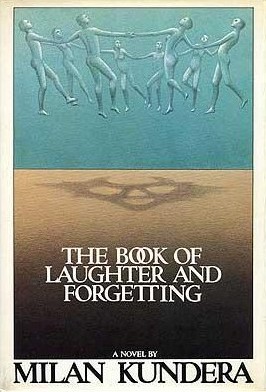 BOOK: The Book of Laughter and Forgetting
BOOK: The Book of Laughter and Forgetting
AUTHOR: Milan Kundera
RECOMMENDED BY: May
MY RECOMMENDATION: Read Only If You’ve Enjoyed Other Kundera Books
There is something chillingly familiar about this book: It is set in a world of neighbors denouncing neighbors, and people being socially ostracized run out of their jobs due to holding opinions that are contrary to the reigning ideology. And it is about history and memory being erased and changed by the hand of power. This is the story of Milan Kundera’s exile from Czechoslovakia during the days of Communism, and the scrubbing away of his contributions, art, and literature to his country. But of course, it’s a Kundera book, so this is all subtext. The text claims to be a novel, but more accurately it’s seven short stories that are thematically connected, and occasionally character-connected. Because Kundera’s style in general is quilt-like, with each chapter a patch containing a different character, story, memory, history, or think piece, when this is spread out across seven stories, it gets a touch laborious at times. The stories “Lost Letters” and “Litost” are the strongest of the bunch, and this collection contains far more musings on love, sex, relationships, and the male gaze than even Unbearable Lightness of Being. Though I’d recommend Unbearable and Life Is Elsewhere above this at times (but not always) fantastic work of historio-philosophical literature. See the quote below: I believe we have reached this age…
The irresistible proliferation of graphomania,,,shows me that everyone without exception bears a potential writer within him, so that the entire human species has good reason to go down into the streets and shout: “We are all writers!”
For everyone is pained by the thought of disappearing, unheard and unseen, into an indifferent universe, and because of that everyone wants, while there is still time, to turn himself into a universe of words.
One morning (and it will be soon), when everyone wakes up as a writer, the age of universal deafness and incomprehension will have arrived.”
 BOOK: Ada or Adore: A Family Chronicle
BOOK: Ada or Adore: A Family Chronicle
AUTHOR: Vladimir Nabokov
RECOMMENDED BY: Reading other Nabokov Books
MY RECOMMENDATION: For readers of Nabokov, Joyce, David Faster Wallace, and Modernist Literature Only
Nabokov is a nearly unparalleled master of the English language, a feat all the more impressive given that he’s Russian. His final book is his masterpiece in the same sense that Finnegan’s Wake is Joyce’s masterpiece. It’s not his best book in my opinion, but it’s his art taken to its fullest expression. Every paragraph is so carefully, geniusly wrought that it’s one of the few books, like Ulysses, that could be re-read every few years and reveal whole new meanings and dimensions. Oddly enough, in keeping with the science-fiction theme of this year’s readings, even this book is set in an alternate world, Demonia or Antiterra, which has slight territorial and technological differences from Terra (our world). It one-ups Lolita by making the love affair at the center of the story between a brother and a sister. There are times when the writing is awe-inspiring, and at other times it’s a slog—mostly because Nabokov’s brilliance is so elevated that few are educated enough to see its full lustre. In just the first 15 pages alone, these were the words I needed to look up: grandoblastically, vernal, cicerone, parvis, sanicle, fulguration, claque, vemiculated, integument, oneirologicallly. Overall, though, if you’re new to Nabokov, start with the following, in this order: Pale Fire, Lolita, and Laughter in the Dark.
“You lose your immortality when you lose your memory.”
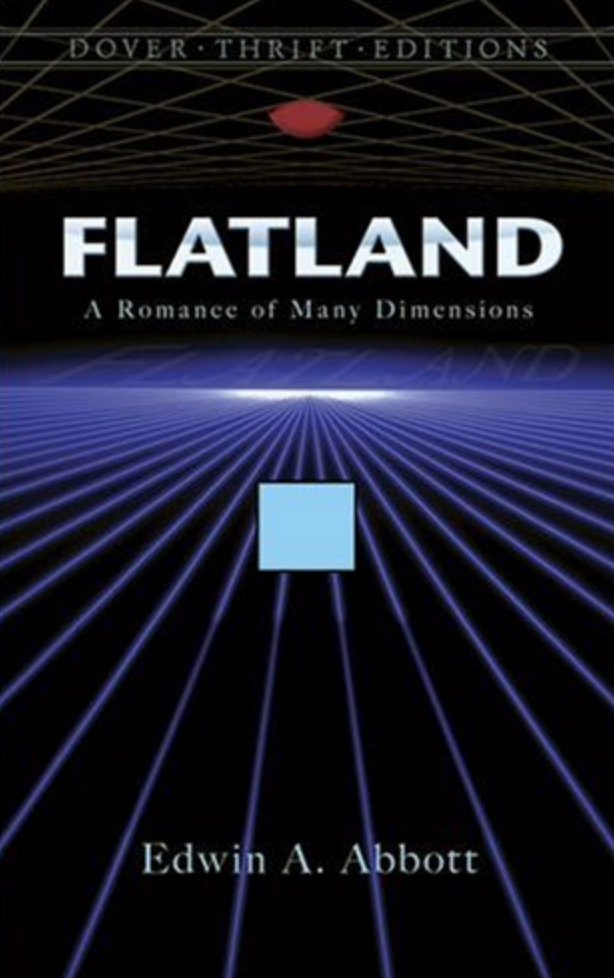 BOOK: Flatland
BOOK: Flatland
AUTHOR: Edwin A. Abbott
RECOMMENDED BY: Ghita
MY RECOMMENDATION: Optional Read
This thin volume is about a thin world: a two-dimensional civilization. Written in 1884, it is ahead of its time both scientifically and socially. Besides serving as an introduction to non-Euclidian geometry, the 2D world is also two dimensional in its thinking: a fascist state where the shape you were born with is your destiny – and women, whose shape is simply a line, are seen as far inferior. When our protagonist, a square, is awoken to the world of three dimensions, he attempts to open the eyes of his fellow 2D citizens. And he suffers the fate that all who see more in a myopic world do.
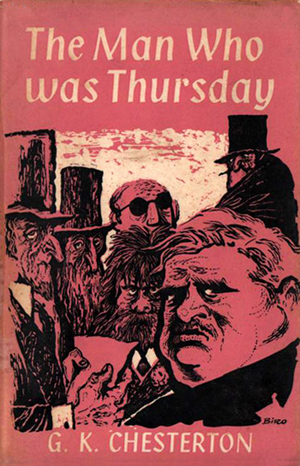
BOOK: The Man Who Was Thursday
AUTHOR: GK Chesterton
RECOMMENDED BY: Amazon List
MY RECOMMENDATION: Not Without Many Merits, But Overall a Pass
This is an unusual novel, and presciently written in 1908: Part spy thriller, part sociopolitical commentary, part theology. And thus it brings together many of the different aspects of the prolific writer and thinker GK Chesterton’s career. In short, it is about a policeman going undercover in a group of anarchists, of which the leadership consists of seven people, each named after a different day of the week. At turns slapstick, at turns philosophical, at turns pulp, and at turns literary, it is an ambitious work but often feels over-written–like everything, both plot-wise and point-wise, could have fit nicely into an amazing short story.
“I do not curse you for being cruel. I do not curse you for being kind. I curse you for being safe!”
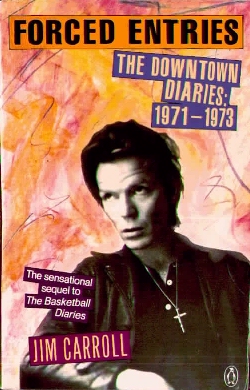 BOOK: Forced Entries: The Downtown Diaries, 1971-1973
BOOK: Forced Entries: The Downtown Diaries, 1971-1973AUTHOR: Jim Carroll
RECOMMENDED BY: Because Basketball Diaries was so good
MY RECOMMENDATION: Skim or pass, read Basketball Diaries instead
Violence is so terribly fast . . . the most perverse thing about the movies is the way they portray it in slow motion, allowing it to be something sensuous . . . the viewer’s lips slightly wet as the scene plays out. Violence is nothing like that. It is lightning fast, chaotic, and totally intangible.
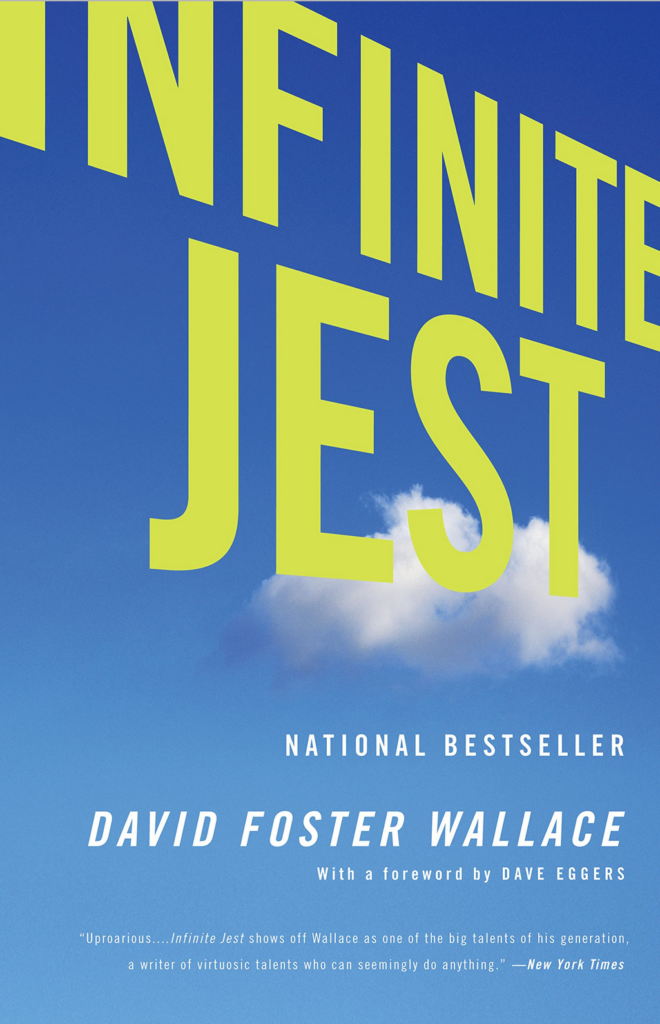
BOOK: Infinite Jest
AUTHOR: David Foster Wallace
RECOMMENDED BY: Oh so many people
MY RECOMMENDATION: (See below)
I have opened the Comments in this post solely because of this book: I want your feedback. I am a lover of large, experimental fiction, of Ulysses and Gravity’s Rainbow especially. So it was with excitement that I cracked this book open, and gathered together the Steemit Book Club to press through together. Yet it wasn’t long before I thought: What made Ulysses and Gravity’s Rainbow so epic was the sheer intentionality of them. No word was in excess, and everything so beautifully tied together – once you understood it, and that understanding didn’t truly come until the end. Yet Infinite Jest—which fits neatly into this year’s accidental sci-fi theme due to its setting in a commercialized, consumerist, addicted semi-dystopia—remains one of the very rare books I didn’t finish. It felt not intentional but careless. It felt like long flights of logorrhea from a man buzzing on some kind of drug and typing as long as the high lasted. It felt like one could remove whole chapters without losing a thing. It felt like, “Is this the best use of my time?” At its best, the book felt like the greatest, boldest writing jag of all time. And maybe the answer is the title, but I even loved Tristram Shandy, which let the reader know at the end that the whole book had been a big “cock and bull” story. It was at least funny and innovative. This felt just dense and plodding. So let me know below if there is something I missed and I should crack this sucker open again.

AUTHOR: Thomas Pynchon
RECOMMENDED BY: Because I loved Gravity’s Rainbow
MY RECOMMENDATION: Just Read the Introduction
This book collects six early published stories by Thomas Pynchon. As the title reveals, they are not stories he is particularly proud of. Though the stories are far above the work of most mature writers, they are worth reading if you’re a Pynchon fan, and want to see early manifestations of his style, themes, and even characters (we first meet the Slothrop family here). But for artists and writers, it’s the 25 page introduction that’s essential. In it, he takes a hard look at his work in this book and unflinchingly points out its flaws, immaturity, and insecurities. It shows what made him one of the greatest writers of the century: the ability to learn from each work, and improve the next piece. Some of the flaws he points out (like his “Bad Ear” for dialect), you may not have even noticed unless he mentioned it–at which point it becomes obvious. In critiquing his own work, however, he leaves behind a trail of pearls for aspiring writers.
As a corollary to writing about what we know, maybe we should add getting familiar with our ignorance, and the possibilities therein for ruining a good story.
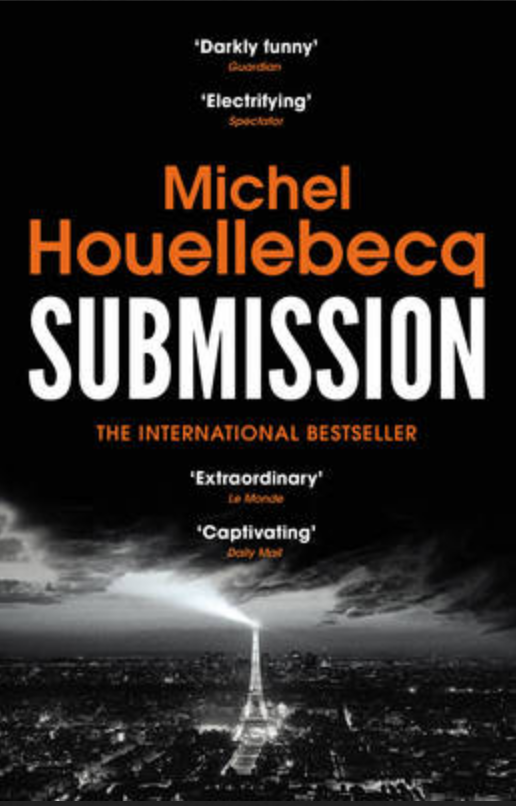 BOOK: Submission
BOOK: Submission
AUTHOR: Michel Houellebecq
RECOMMENDED BY: Owner of Abbey Bookstore, Paris
MY RECOMMENDATION: Pass
This is a widely misunderstood book. Some have described it as far-right fear-mongering: a book creating a dystopia in which a surge of Muslim immigrants changes not just the culture of the country, but helps elect a Muslim government into power. While this is exactly what happens, Houellebecq makes a much more nuanced argument here: The idea that his main character, a university professor obsessed with the decadence and dandyism of JK Huysmans (yet mystified by Huysmans’ religious conversion), would actually be happier living under Islamic law. It comes as no surprise to anyone who has read Houellebecq’s other work, particularly Platform, that the chief appeal to the protagonist is patriarchy and polygamy. What never ceases to amaze me in Houellebecq’s work is how little a writer who’s obsessed with women actually understands women. There are cringe-worthy moments here, yet compensating for them are some great ideas and a challenge to the idea of secular liberal democracy as the ultimate form of government. But overall, as with Platform, I couldn’t wait for it to end.
Nostalgia has nothing to do with aesthetics — it’s not even connected to happy memories. We feel nostalgia for a place simply because we’ve lived there; whether we’ve lived well or badly scarcely matters. The past is always beautiful. So, for that matter, is the future. Only the present hurts, and we carry it around like an abscess of suffering, our companion between two infinities of happiness and peace.
NONFICTION BOOKS I’VE READ THIS YEAR (in order of preference):
Essentialism: The Disciplined Pursuit of Less, by Greg McKeown
Leadership & Self-Deception by the Arbinger Institute
Elon Musk: Tesla, SpaceX, and the Quest for a Fantastic Future by Ashlee Vance
Soul on Ice by Eldridge Cleaver
The Elephant in the Room: A Journey into the Trump Campaign and the “Alt- Right” by Jon Ronson
House of Prayer, No. 2: A Writer’s Journey Home, by Mark Richard
The Insanity Defense: The Complete Prose by Woody Allen (not really non-fiction but an anthology of comedic essays of mixed quality, though the story “The Kugelmass Episode” is great, which you can read here.)

